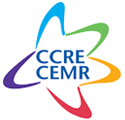
Italy Unitary state
| ITALY | / STRUCTURES |
Structures and competences
Local level :
8,006 municipalities (Comuni)
The council (Consiglio) is elected by direct universal suffrage for fiveyear period. It is the main decision-making body of the municipality, is responsible for planning and controls governance matters. The city council in particular adopts the budget of the town.
The city board (Giunta comunale) is the executive body of the municipality. It implements decisions taken by the council. Its members are called deputy mayors (Assessori) and are appointed by the mayor.
The mayor (Sindaco) is elected by direct universal suffrage for a of five-year period. He/she delegates some of his/her powers to the deputy mayor, who is appointed by the mayor. The mayor also heads up the local civil service.
Each municipality responds to a province or a metropolitan city, but they may also directly relate to its region or the central government if necessary. The municipality may acquire city status if the president of the republic provides them with this status.
COMPETENCES
- Social services
- Urban planning
- Economic development
- Public services
- Land development
- Environment
- Culture
Intermediate level :
100 provinces (Provincia) and 10 metropolitan cities (Città metropolitane)
Italy is composed of two intermediate levels, i.e. the provinces (Province) and the metropolitan cities (Città metropolitane).
- Provinces
The members of the provincial council (Consiglio provinciale) are elected by, and from among themselves, i.e. from the mayors and councillors of the municipalities of the province concerned, for a period of two years. The council decides upon the policies of the province and approves the budget.
The assembly of mayors is composed of mayors of municipalities within the province. It has advisory and control powers as well as the power of initiative.
The president (Presidente) is elected by the mayors and councillors of the municipalities of the province, for a period of four years, and who will be drawn from one of the municipalities’ mayors coming from the province concerned. He/she represents the province, is the chairperson of the board and of the assembly of mayors. His/her functions are to supervise the operation of the services and offices.
COMPETENCES
- Environment
- Transport and land use planning
- Metropolitan cities
The members of the metropolitan council (Consiglio metropolitano) are elected by, and from among themselves, i.e. from the mayors and councillors of the municipalities of the metropolitan city. They are elected for a period of five years. The statute of the institution may provide for the direct election of the metropolitan council. It performs a planning and control function.
The metropolitan conference (Conferenza metropolitana) is composed of the metropolitan mayor, who convenes and chairs it, and of the mayors of the municipalities within the metropolitan city. It has the power of initiative and consultative powers.
The metropolitan mayor (Sindaco metropolitano) is the mayor of the provincial capital. The status of the institution may provide for his/her direct election. He/she represents the metropolitan city and supervises the operation of services and offices.
COMPETENCES
- Environment
- Education
- Transport
- Urban planning
- Public services
- Traffic management
- Economic and social development
Regional level :
20 regions (regione)
The regional council (Consiglio regionale) is the legislative body of the region. It can present projects of law to the national parliament and can dismiss the president of the regional executive committee.
The regional executive committee (Giunta regionale) is the executive body of the region. It consists of a president and aldermen appointed by the president for a period of five years.
The president (Presidente) is elected by direct universal suffrage if the statute does not otherwise provide for a period of five years. He/she chairs the regional committee and appoints or dismisses the members. The president represents the region, determines the regional policy and executes the laws and regional regulation. He/ she is responsible for executing the administrative functions delegated by the state to the regions, according to government guidelines.
COMPETENCES
- International relations with other regions and with the EU
- Trade
- Health
- Land development
- Transport
- Manufacturing and distribution of electrical energy
- Urban planning
- Agriculture





